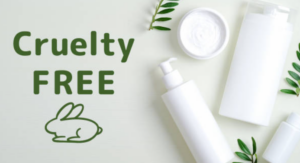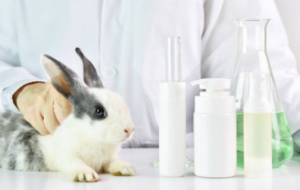Understanding Cruelty-Free Brands

In recent years, the beauty industry has seen a significant shift towards ethical and sustainable practices, with more consumers demanding cruelty-free products. Cruelty-free brands, which refrain from testing their products on animals, have gained popularity for their commitment to animal welfare. However, despite the growing awareness surrounding cruelty-free beauty, there are still many myths and misconceptions that persist. In this blog post, we’ll debunk some of the most common myths about cruelty-free brands and shed light on the truth behind these misconceptions.
Myth #1: “Cruelty-Free Products Are Less Effective”
One of the most common myths about cruelty-free products is that they are less effective than their non-cruelty-free counterparts. This misconception stems from the belief that products must undergo animal testing to ensure their safety and efficacy. However, advances in technology and alternative testing methods have made animal testing unnecessary.
The truth is that cruelty-free brands invest heavily in research and development to create innovative formulas that deliver results without harming animals. Many cruelty-free products are formulated with high-quality, plant-based ingredients that are just as effective – if not more so – than their animal-tested counterparts. From skincare to makeup to haircare, there are countless cruelty-free options available that deliver outstanding performance without compromising on ethics.
Myth #2: “Cruelty-Free Products Are More Expensive”
Another common misconception is that cruelty-free products are more expensive than conventional products. While it’s true that some cruelty-free brands may have higher price points due to their commitment to ethical sourcing and production practices, there are plenty of affordable options available.
In fact, many cruelty-free brands offer competitive pricing and value-packed products that are accessible to consumers of all budgets. By cutting out the costs associated with animal testing and focusing on ethical manufacturing processes, cruelty-free brands are able to offer high-quality products at affordable prices. With a little research and exploration, you can find cruelty-free alternatives to your favorite beauty staples without breaking the bank.
Myth #3: “Cruelty-Free Means Vegan”
There is a common misconception that cruelty-free and vegan are interchangeable terms, but they actually refer to two different things. Cruelty-free products are those that have not been tested on animals, while vegan products are those that do not contain any animal-derived ingredients.
While many cruelty-free brands also offer vegan options, not all cruelty-free products are vegan, and vice versa. It’s essential to read product labels and ingredient lists carefully to determine whether a product meets your specific ethical preferences. By choosing both cruelty-free and vegan products, you can support brands that align with your values and principles.
Myth #4: “Cruelty-Free Products Are Hard to Find”
Some consumers believe that cruelty-free products are difficult to find or are only available from niche, specialty brands. However, with the growing demand for ethical and sustainable beauty options, cruelty-free products are more accessible than ever before.
Many mainstream beauty retailers now carry a wide selection of cruelty-free brands, making it easier for consumers to make ethical choices when shopping for beauty products. Additionally, there are numerous online resources and directories dedicated to cruelty-free beauty, where you can find information about brands, products, and certifications.
Myth #5: “Cruelty-Free Testing Is Required by Law”
Contrary to popular belief, animal testing for cosmetics is not required by law in many countries around the world. In fact, there are numerous countries and regions – including the European Union, India, and Israel – that have banned or restricted the use of animal testing for cosmetics.
However, there are still some countries, such as China, where animal testing is required by law for certain imported cosmetics. As a result, some brands may choose to test on animals in order to access these markets. It’s important for consumers to be aware of these nuances and to support brands that are committed to cruelty-free practices, regardless of market regulations.
Myth #6: “Cruelty-Free Brands Are Small and Niche”
While there are certainly many small, independent cruelty-free brands making waves in the beauty industry, cruelty-free options are not limited to niche labels. In fact, many well-known and established beauty brands have made the commitment to cruelty-free practices in recent years.
From drugstore favorites to high-end luxury brands, there are cruelty-free options available at every price point and across every category of beauty. By supporting these brands, consumers can send a clear message to the industry that ethical and sustainable practices are important and should be prioritized.
Myth #7: “Cruelty-Free Products Are Less Regulated”
Another common misconception is that cruelty-free products are less regulated than conventional products. In reality, cruelty-free brands are held to the same rigorous safety and quality standards as any other beauty brand.
Many cruelty-free brands voluntarily undergo third-party certification processes, such as the Leaping Bunny or PETA’s Beauty Without Bunnies program, to provide consumers with assurance that their products are truly cruelty-free. These certifications require brands to adhere to strict criteria and undergo regular audits to ensure compliance with cruelty-free standards.

As the demand for cruelty-free beauty continues to grow, it’s important to debunk the myths and misconceptions that surround these products. Contrary to popular belief, cruelty-free products are not less effective, more expensive, or harder to find than conventional products. With a commitment to ethical sourcing, innovation, and transparency, cruelty-free brands are leading the way towards a more compassionate and sustainable beauty industry. By choosing cruelty-free products, consumers can make a positive impact on animal welfare and support brands that align with their values and principles.

